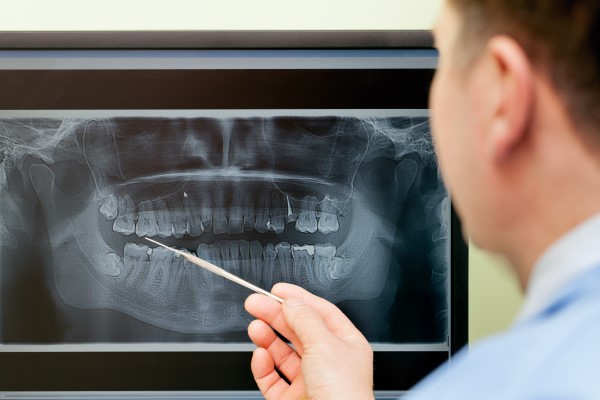4 Signs You Need a Bone Graft

A dentist determines whether you need a bone graft when they diagnose you. They will use visual exams and medical imaging to get a complete picture of what is going on beneath the gum line.
Dentists might recommend bone graft procedures right after tooth extraction. This type of bone graft is a preventative measure that prevents the bone loss that results from missing teeth. More often, dentists perform bone graft procedures in preparation for dental implants. In such cases, the bone graft increases the bone mass and bone density of the jaw. Here is how you can find out whether you need a bone graft.
Bone grafts and the health of the jaw
By definition, grafting is the addition of donor material onto existing tissue. It could be skin, bone, or even plant material; the role of the graft is to stimulate the growth or regeneration of recipient tissue.
Bone is constantly losing minerals and rebuilding itself. Like muscle tissues, bone tissues improve their mass and density with a healthy amount of exercise. The same goes for the jawbone. It sheds calcium into the bloodstream in a process known as resorption. Chewing and biting cause tooth roots to flex, which stimulates the jawbone to replace lost minerals in a process known as adsorption.
The loss of one or more teeth means there are not enough tooth roots to stimulate the regeneration of the jawbone. Over time, the bone tissues around the sockets of any missing teeth will lose mass and density. There are other reasons that the jawbone can lose bone mass.
How to know if you need bone grafts
Some people can qualify for dental implant surgery without the need for a bone graft. Conversely, a bone graft becomes necessary for patients who have the following conditions.
1. Have missing teeth
Missing teeth mean missing tooth roots. These deny the jawbone of the "workout" that it needs to replace lost minerals. A person with missing teeth who goes for an extended period without dental implants is likely to need a bone graft.
2. Have a history of gum disease
Another way to lose bone tissue is through infection. Severe periodontal disease is an infection that can spread past the gums and into the jawbone. Often, infection of the jawbone has the knock-on effect of loose or missing teeth.
Periodontists will perform bone grafts after the infection has been eliminated. The bone grafts are usually done in preparation for dental implant surgery after tooth loss.
3. Are recovering from an injury to the jaw
A hard blow to the mouth or face can break the jawbone. An oral surgeon may choose to use bone grafts to restore the shape and mass of damaged bone tissues.
4. Have a medical condition that affects the bones
A systemic health problem that affects the bones may affect the jaw as well. The symptoms of the condition may manifest as loose teeth.
Routine dental checks are useful because they enable dentists to monitor the health and formation of a patient’s jaw. A dentist will recommend a bone graft if this course of treatment promises to be helpful.
We can help restore full form and function to your smile
Our practice has a team with the skill and experience to perform different variations of bone graft procedures. Get in touch with us, and prepare to join our long list of healthy, happy patients.
Request an appointment here: https://www.newyorkdentaloffice.com or call New York Dental Office at (212) 548-3261 for an appointment in our New York office.
Check out what others are saying about our dental services on Yelp: Will I Need a Bone Graft for Dental Implants in New York, NY.
Recent Posts
A bone grafting procedure involves the restoration of lost jawbone, which is necessary before dental implant placement if the patient does not have enough healthy jawbone to support the implant long-term. This review discusses dental bone grafting for the purpose of restoring lost jawbone ahead of dental implant placement.Not every dental implants patient requires bone…
Learning more about when a bone graft is needed will help you understand more about your good oral health. When you understand what it takes for you to have good oral health, you are more likely to experience it, and your overall health will likely be in good shape too.Want to know whether a bone…
Dental restoration services, formally known as restorative dentistry, are paramount to a person’s overall oral health. Dental restoration is the process of repairing teeth and restoring them to their original state, hence the name. This article will explore how restorative dentistry can prevent health problems, from tooth decay to misalignment and more.Decay, infection, and other…
If you have ever felt self-conscious about your teeth and considered seeing a cosmetic dentist, you are not alone. Americans spend thousands of dollars trying to enhance their smiles each year. However, for a truly transformative look that is also safe for your teeth, it is recommended that you see a cosmetic dentist.A cosmetic dentist…



